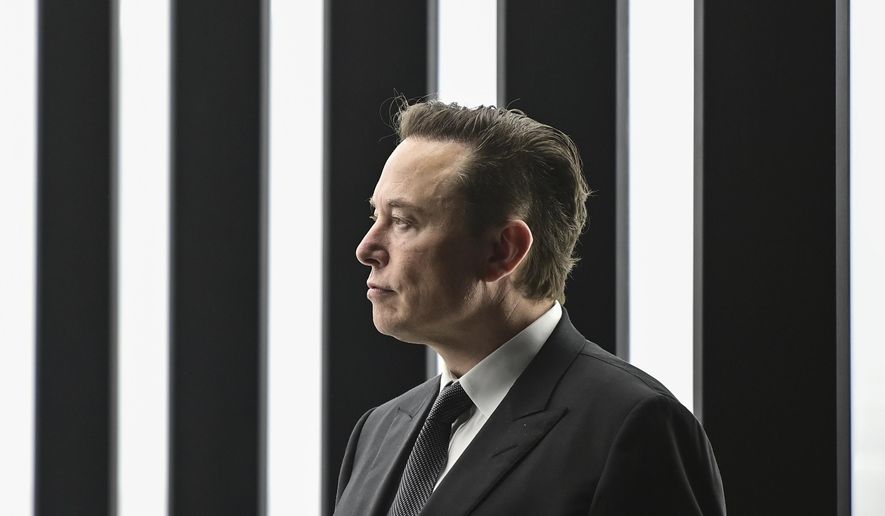Twitter’s new owner Elon Musk said Wednesday that banned users will not return to the social media platform for at least a few more weeks, dashing the hopes of people who thought the change in leadership would yield sudden changes online.
Mr. Musk said he has huddled with civil society leaders on how to combat hate and harassment and how to enforce election integrity policies as he reviews Twitter’s censorship practices.
“Twitter will not allow anyone who was de-platformed for violating Twitter rules back on platform until we have a clear process for doing so, which will take at least a few more weeks,” Mr. Musk said on Twitter.
Mr. Musk listed eight people and groups he met with about Twitter’s policies including representatives from the Anti-Defamation League, the Asian American Foundation, Color of Change, Free Press, the League of United Latin American Citizens, NAACP, and the George W. Bush Presidential Center.
Many political conservatives were not happy with the people Mr. Musk consulted for advice and took to Twitter to recommend other people or offer their own services.
“Every single one of these people shares the same ideology — the very ideology that got Twitter this mess in the first place,” said conservative podcaster Allie Beth Stuckey on Twitter about Mr. Musk’s list.
Judicial Watch president Tom Fitton similarly criticized the list for appearing overly liberal.
“The Left that supports mass censorship of their political opponents certainly seem well-represented here!” Mr. Fitton said on Twitter.
Mr. Musk is also facing criticism from liberals. Sen. Richard Durbin, Illinois Democrat, said Tuesday that he observed an uptick in hate speech since Mr. Musk took over the platform and accused Twitter’s new owner of spreading misinformation.
“Free speech does not include spreading misinformation to downplay political violence,” Mr. Durbin said on Twitter.
Mr. Musk and Twitter may soon face bipartisan scrutiny from federal lawmakers. Rep. James Comer, Kentucky Republican, sent Mr. Musk a letter earlier this week asking him to hand over documents about Twitter’s restrictions on stories involving Hunter Biden before the 2020 election.
Mr. Comer wrote that he and fellow Republicans on the House Committee on Oversight and Reform wanted Mr. Musk to reverse Twitter’s approach to digital censorship.
While Mr. Musk has moved slowly to change Twitter’s censorship policies, he has moved far faster to grow the company’s revenue. On Tuesday, he detailed a plan to make users pay to hold the coveted blue badge signaling verification of a person’s authenticity and authority online.
Mr. Musk is overhauling the process for obtaining and keeping Twitter’s blue checkmark, and floated an $8 pricetag to hold the status symbol. He said the fee would be adjusted for people in various countries and that paying customers would also receive other online features such as priority visibility in replies, mentions, and search on the platform.
• Ryan Lovelace can be reached at rlovelace@washingtontimes.com.




Please read our comment policy before commenting.